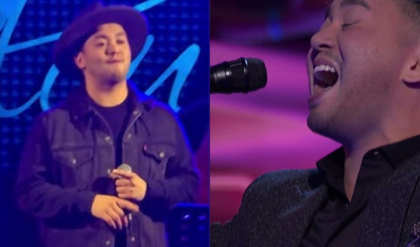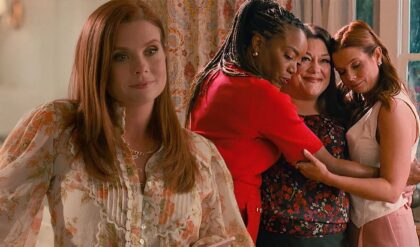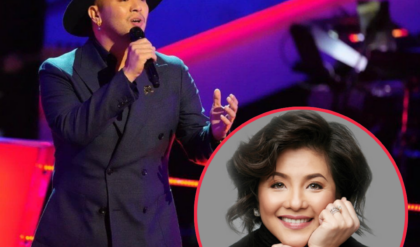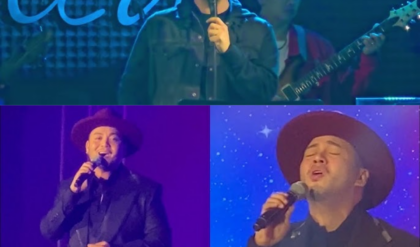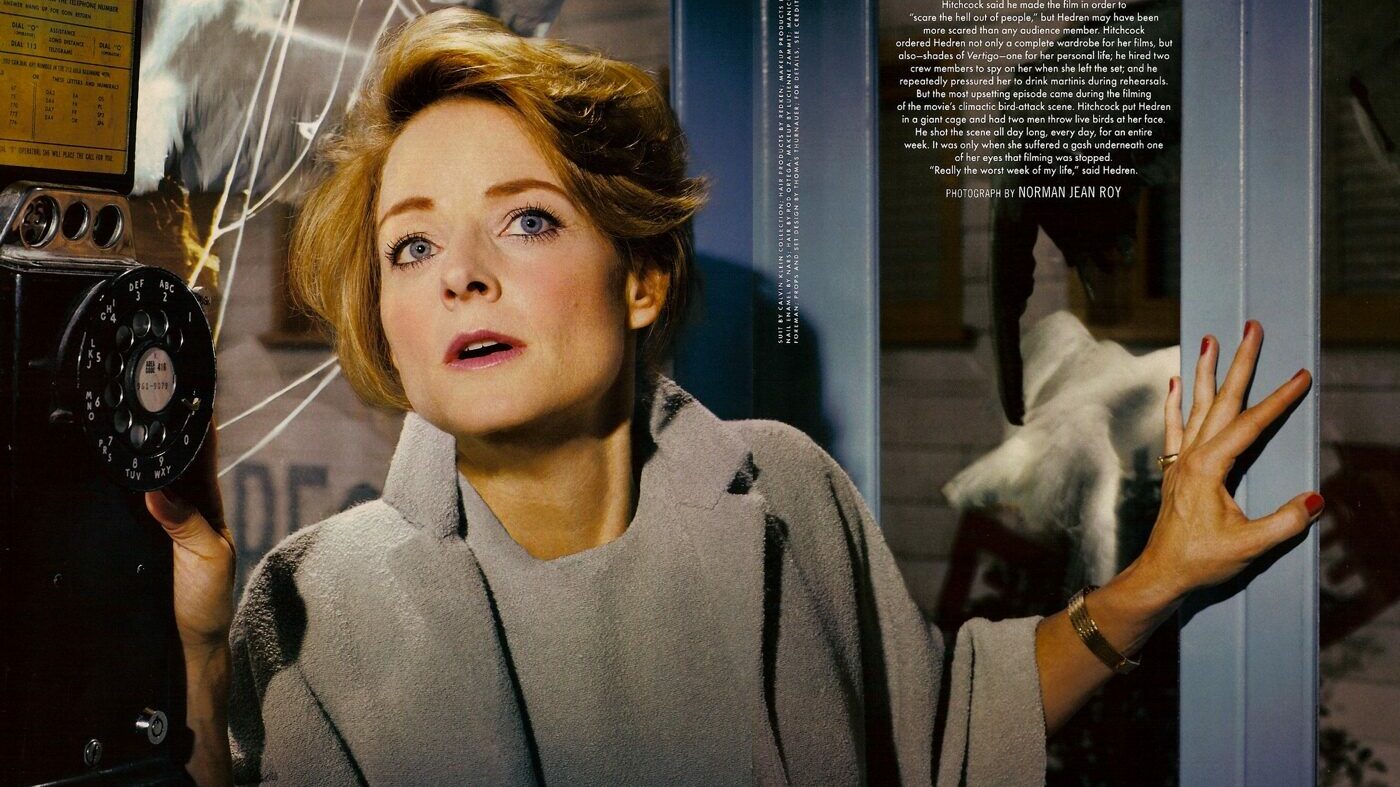
Was there an actor who was part of my childhood? Did she make movies with important statements? When outed without consent did she take back the narrative of her life? Is she mentor to many? And are there lessons we can learn from a mistake? If we are talking about 2 time Oscar Winner Jodie Foster, yes.
Last week I asked readers to “Make Your Mark and Contribute to the Next Fem Friday!” Jennifer L. was the first reader to pop into the comments and say, “What about Jodie Foster? She’s had quite a life…”
She has had quite the life and it is such a biography that we will have to focus on some important moments in her auspicious and exciting life.
Growing Up With Jodie Foster

If you were Gen X, Jodie Foster was a part of your childhood growing up.
I first remember seeing her in a TV show called Courtship of Eddie’s Father. In this TV show based on a movie and a book of the same name, Bill Bixby, Brandon Cruz and Miyoshi Umeki star together featuring a widowed magazine publisher with a precocious son and discreet housekeeper who both craft schemes to find a wife for the widowed dad. Jodie Foster played a girl named Joey Kelly who started out as young Eddie’s bully but would go on to become his friend.
I was a fan of the show due to my parents being estranged from each other and I longed for a deeper relationship with my dad like Eddie had with his dad. Jodie Foster’s character stuck out to me because the idea that girls and boys could be equal friends was nice to see and helped me forge deep friendships with women from a young age.
Growing up in the 1970s meant “The Wonderful World of Disney” hosted by Jiminy Cricket played a Disney movie on ABC once a week. Families gathered around the television to watch. Jodie Foster was seen by us in movies like Candleshoe, One Little Indian, Napoleon and Samantha, and the beloved classic, Freaky Friday.
Freaky Friday was based on a YA book in the early 70s and was an instant classic. A constantly quarreling mother and daughter, Ellen Andrews (Barbara Harris) and her daughter Annabel (Jodie Foster) switch bodies for a day and see life through the other’s eyes. This comedic twist beyond the hijinks binds them closer together once they are restored to their original bodies.
As an aside, her contract with Disney was the only thing that kept her from becoming Princess Leia in the first Star Wars movie in 1977. Remember that next time you watch Freaky Friday, Gen X Kids!
So for all of these roles and many more in the 1970’s, the Gen X childhood had Jodie Foster as part of our early pop culture experience.
Her film and directing career continues today. But there are some points in the career with socially important films.
Taxi Driver
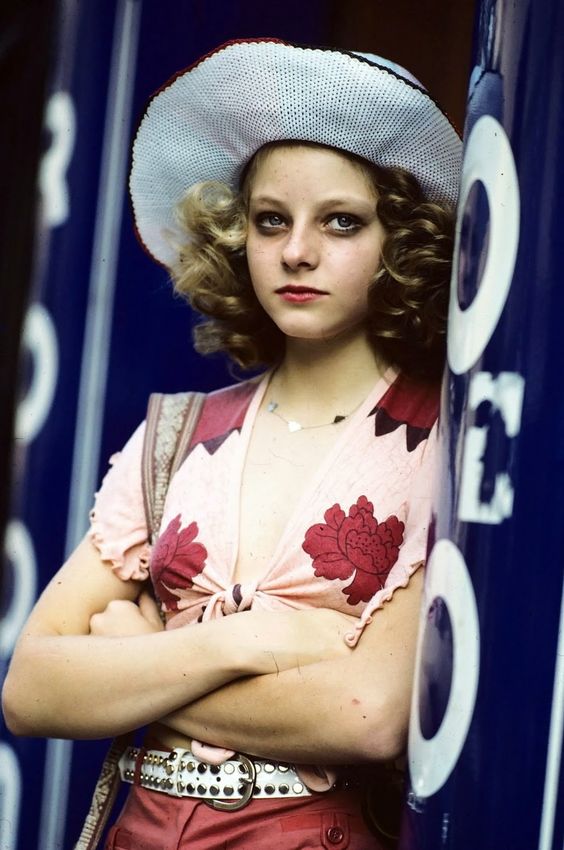
At the age of 12, Jodie Foster took on a gritty role of something that existed in the 1970’s and still exists today. She played a teenager forced into child sex work. Unusual for the 1970’s, measures were taken to protect her. She underwent a psychological evaluation prior to filming and Martin Scorsese had a Licensed Clinical Social Worker with Jodie Foster on set and off set to ensure she was not harmed by the content. They also used a body double for filming anything that would be sexually suggestive.
Not only were the precautions taken to ensure a young actor was safe an elevated standard, so was her portrayal and the creation of her character groundbreaking. Her character, Iris, is a teenage runaway who gets manipulated into sex work by a drug dealer and pimp. When she starts see through the gaslighting of the pimp, the pimp reasserts control with molestation.
Towards the end of the film you see through a letter her father writes to the main character that she is home, safe, and recovering from trauma from the things she has seen and experienced. The trauma despite her seemingly casual and adult like nature is the key point. The things done to a child will rob them of their childhood and leave lasting emotional scars forever changing normal experiences.
During the filming of Taxi Driver she was mentored by Robert Dinero which inspired her to see acting as a craft and an artform. She also got her first Oscar Nomination for her role.
On a social front, we got to see human trafficking involved in child prostitution and the affect it can have on the victim.
In my life I have dated three sex workers. Through them I’ve gotten to meet other sex workers. Not all of them were victims of human trafficking, but the ones that were have stories of manipulation and horrors that need to be heard and understood especially in today’s political climate where people who don’t know shit about legitimate sex work and human trafficking express opinions that harm the wrong people and ignores the real issues.
The Accused
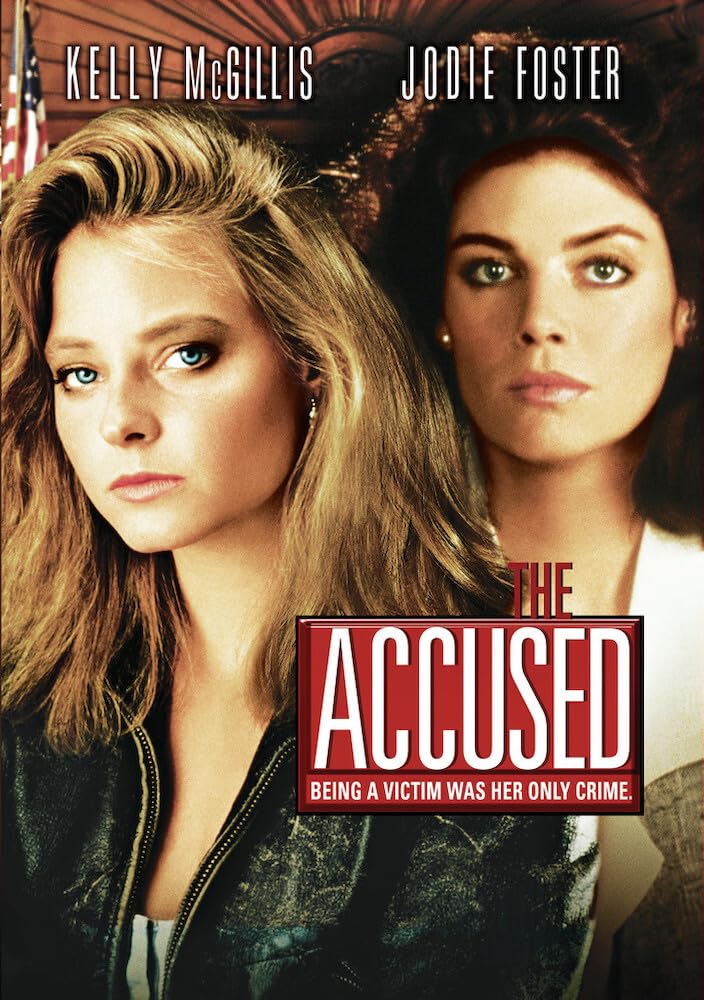
In 1988 Jodie Foster would play a role, based on a true story, that would win her not only another Oscar nomination, but she would win the Oscar.
In the accused Jodie Foster plays a women who was a victim of a violent gang rape in a public space. Witnesses were in abundance and the victim’s pursuit of justice would have few advocates and a lot of slut shaming and victim blaming.
The rape scene is graphic, violent, and hard to watch. But the themes are important. Rape and sexual assault happen. And even when there are witnesses and it is a clear and violent violation it is nearly impossible for a victim to speak out, be taken seriously, and get justice despite a mountain of evidence.
There had not been a movie made at this point that so graphically and poignantly showcased the unlikely road to get justice, or even believed, as a victim of sexual assault and rape. 36 years later this is still true despite many laws, movements, and movies.
The discussion sparked by Jodie Foster and The Accused is still a discussion that needs to be had and greater progress needs to be made.
The Not So Silence of the Hit Piece Journalists
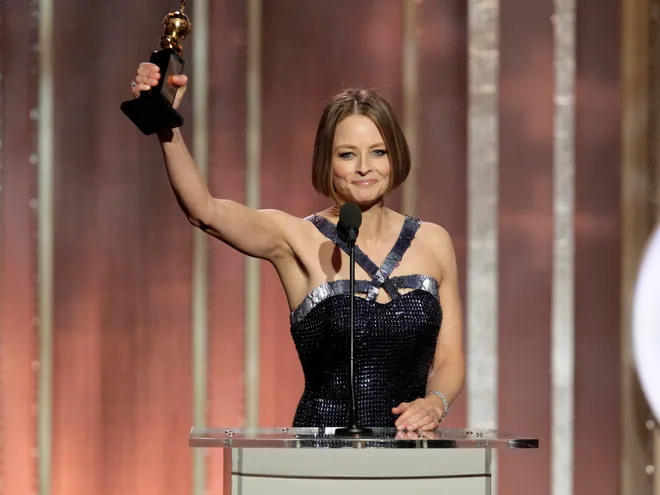
Today, Jodie Foster is celebrated for her advocacy and being a strong and inspiring lesbian in Hollywood. Jodie Foster existed in Hollywood in a time where it was not safe, or legal in many places, to be gay. Silence of the Lambs was criticized by many for being transphobic.
This is an important conversation. On the one hand, Hannibal states the serial killer Buffalo Bill isn’t transgender, and Clarice (played by Jodie Foster) as an FBI agent states that there’s no link between being transgender and being a violent criminal. The film viewed through one lens tries to separate its villain from the trans community. Viewed through another lens, an antagonist that is a man who wants to be a woman who kills women to dress in their skin along with tropes about the male and female “sides” at war is deeply troubling and damage has been done.
There are valid criticisms about the movie in regard to trans portrayal in entertainment. The protests about this outside the Oscars the night Silence of the Lambs won five Oscars were valid. But there was something else that happened that was a violation in human decency that is common in entertainment journalism. Hit pieces.
OutWeek, The Village Voice, and other queer publications that said very important things, especially during the AIDS epidemic, outed Jodie Foster. They did not violate most ethical codes of journalism, but they crossed a line. As a parent to a transgender adult child and “surrogate” dad and former crisis hotline volunteer, (and as someone who recently came out bi), this move was distressing and dangerous. A hit piece may not violate journalistic ethics in letter of the law, but it is, in my opinion, an abuse of power.
In that moment, her and her family were placed in danger by advocates who were also queer.
In 2013 Jodie Foster came out in vague terminology in a Golden Globes Acceptance speech.
Diane Anderson-Minshall, then executive editor of The Advocate, was critical of Jodie’s coming out. “It was cryptic and defensive and we started thinking it was a joke. She sounded a little passive-aggressive to a lot of LBGT activists. This woman who obviously has been afraid to come out in the public sphere has been out in her private life for decades. By our stand, you are not out until you are publicly out. Even though she danced around being a lesbian, at least it’s finally done.“
The simple fact of the matter is, Jodie Foster had a journalistic gun to her head for more than a decade. She did not get to come out on her terms and even when she did come out, her terms were not respected. Psychologists and advocates speak of the importance of a queer person to come out on their terms. The same leaders in these fields also state being outed without your consent is deadly.
I know a little about how this feels. The article I wrote about the Queer Coding in Miami Vice in which I came out as bi was me getting ahead of a threat. I am not a national figure and this was not going to be front page news, but someone converted my misplaced trust into power and leverage and being out on my terms was the only way out.
Today, The Advocate and many other queer publications rightly celebrate Jodie Fosters stances on human and civil rights as well as other accomplishments as an out queer woman. But the road there was bullshit and she deserved better.
The Mentor and the Gaffe
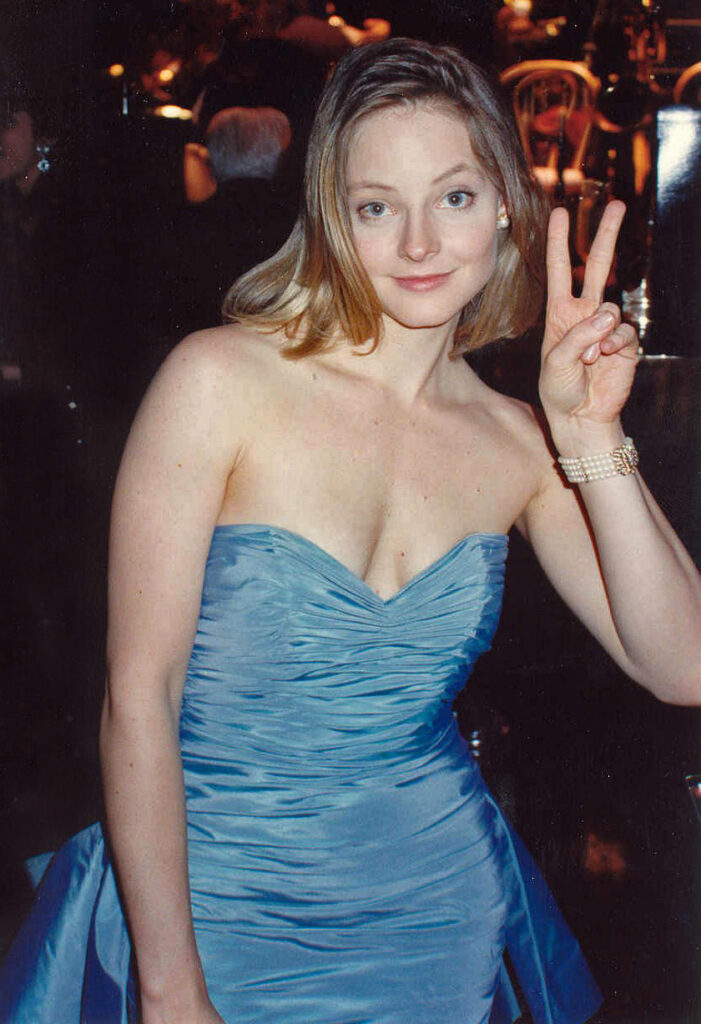
Jodie Foster had long been known to reach out to younger female actors and give them support and mentorship. This is a difference maker. The road of modeling, acting, and all aspects of the entertainment industry is arduous and sometimes dangerous. Without a mentor you may as well be tap dancing in a minefield without a map and a misstep can end your hopes and dreams and even your safety.
Many of our generation who have “made it” will let the others find their own path without lifting a finger to help. Of the child actors from my time, for every one that made it through the gauntlet liker her and Ron Howard, there are figures like Brittney Spears and Corey Feldman who paid a price almost as steep as Jodie Fosters character in Taxi Driver.
She recently reached out to the young non binary actor from Last of Us fame, Bella Ramsey.
But in the same Guardian article in which she discussed her recent interactions with Bella, she also made a gaffe. In regard to Gen Z she said the following:
“They’re really annoying, especially in the workplace. They’re like, ‘Nah, I’m not feeling it today, I’m gonna come in at 10:30 a.m.’ Or, like, in emails, I’ll tell them this is all grammatically incorrect, did you not check your spelling? And they’re like, ‘Why would I do that, isn’t that kind of limiting?’”
There has been pushback and criticisms of her statements. Many of them are valid.
Before I get to the valid bits, there is a lot that is not valid. On social media and in entertainment journalism there is a collective bloodlust many get into. Some call it cancel culture, keyboard courage, and other things. While there are consequences for things we say or do that are valid, just like the violation of outing without consent, there are things done in media and social media that are clear violations. Doxxing, death threats, threats of violence, stalking, and other forms of intimidation and hate speech. These are never acceptable things.
While it is clear in the Guardian’s journalist’s presentation of Jodie Foster’s comments on Gen Z as being in jest, that still does not make the comments acceptable. There is valid clapback and the Boomer and Gen X response of “I was just kidding” does not make unacceptable statements acceptable.
I wish that prior to that interview she could have had a real life Freaky Friday moment and traded spaces with her younger self or maybe even Bella Ramsey. Perhaps all of us in X need a Freaky Friday day with Z.
The Lesson
In my 53 years as a human being, 24 years as being a parent, and 20 years as a columnist, I have said my share of regrettable things. I have hurt my child and their friends, the deaf community, minorities, women, queer people, friends, romantic partners, and others. There have been times that I have defended my actions, given lame non apology apologies, or hidden behind jest knowing full well jokes that punch down are not kind or ethical. For a little over 16 years now I have been very deliberate in listening to the hurt I have caused unintentionally, owning my actions or words, apologizing sincerely, making amends when possible, and changing my behavior moving forward.
My generation and my own personal life has had toxicity. You see things as important or acceptable that are not. You can learn from those mistakes. Given enough years on this earth you may even gain wisdom.
While I do not believe Jodie Foster has addressed the backlash on her remarks in January of 2024, she did show growth in how she speaks of Gen Z in June of 2024.
In a Hollywood Reporter roundtable discussion her and her panel was asked a question.
“What do you wish somebody had called and told you …right now in your career or at the beginning of your careers?”
Her answer?
“You can say no. For whatever reason I didn’t know that when I was young, that I can say no. That’s what’s good about this new generation is they’re very comfortable with saying no. Very, very good at setting boundaries and going, ‘I don’t like that’ and ‘I want to do this.’ And I didn’t know that was possible when I was young.”
I think this statement which is garnering far less press and attention than the prior statement shows genuine growth and appreciation. The question was not about Gen Z, but she made her answer about what she appreciates and has learned from them.
Closing Thought
She is only 61 and still active in her career. As someone who has seen every movie she has been in, I want to see her get two more Oscars. If she can not only tie Daniel Day-Lewis, Ingrid Bergman, Frances McDormand and Meryl Streep with 3 Oscars and get one more in for the record, I think it would be recognition that she is the best actor in my lifetime.
Make Fem Friday Yours!
Is there a pop culture icon you want us to (dis)cover for Fem Friday, let us know in the comments. Are you a woman or friend beyond the binary that wants to write a Fem Friday? Let us know in the comments! We want to hear from you!

